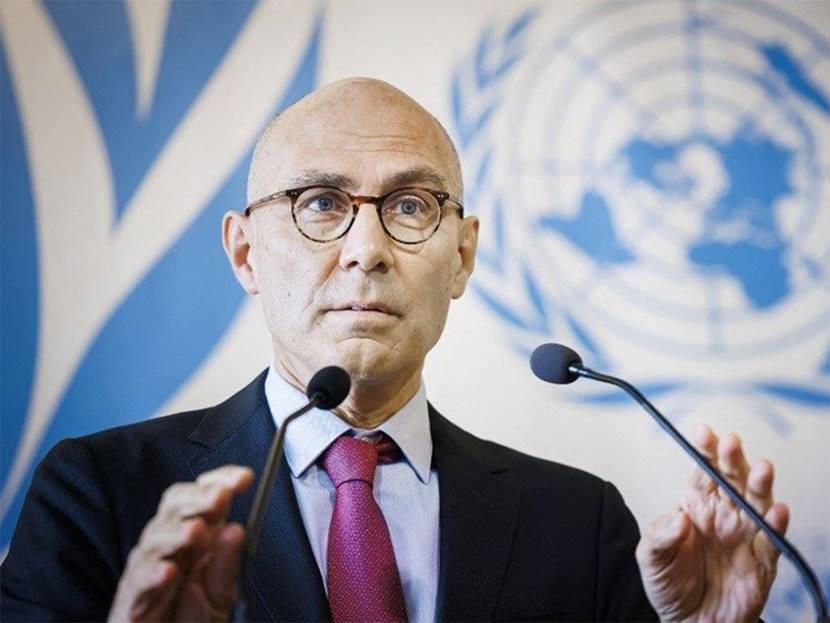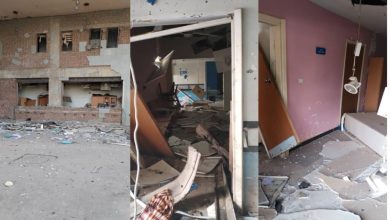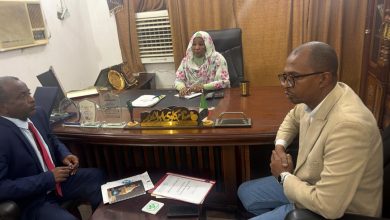Türk urges urgent action to protect civilians and prevent mass atrocities in besieged El Fasher
Geneva – Mashawir

UN High Commissioner for Human Rights, Volker Türk, today (Thursday) called for urgent action to prevent large-scale attacks and ethnically motivated atrocities in the city of El Fasher, as Rapid Support Forces (RSF) intensify their assaults to seize control of the long-besieged capital of North Darfur State.
“After more than 500 days of continuous siege imposed by the RSF, and ongoing fighting, El Fasher stands on the brink of an even greater catastrophe unless urgent measures are taken to ease the armed stranglehold on the city and protect civilians,” Türk said.
Reports of RSF positioning long-range drones in South Darfur have raised grave concerns about a possible escalation of hostilities in the coming days.
Civilians continue to bear the brunt of indiscriminate and direct attacks as fighting intensifies in El Fasher. Between 19 and 29 September, at least 91 civilians were killed by artillery shelling, drone strikes, and ground incursions carried out by RSF forces. In addition to repeated attacks on civilian objects, these practices appear to be aimed at forcibly displacing civilians from El Fasher, including from the Abu Shouk IDP camp.
Al-Daraja al-Oula neighborhood in the city, which hosted displaced people from Abu Shouk camp, has come under repeated attacks, including two drone strikes that hit a market last week, and an earlier drone strike on a mosque that killed at least 67 civilians on 19 September. On 30 September, the Office of the High Commissioner for Human Rights (OHCHR) received credible reports that at least 23 civilians were killed when a community kitchen in Abu Shouk neighborhood was shelled.
The High Commissioner stressed the urgent need to ensure the protection of the remaining civilians in El Fasher, including those who may not be able to leave, such as the elderly, people with disabilities, and those suffering from chronic illnesses.
“Safe and voluntary passage for civilians out of El Fasher must be guaranteed, along their routes and at checkpoints controlled by various armed groups,” Türk said. This followed repeated reports of serious violence against those fleeing, including summary executions, torture, abductions, and looting. The High Commissioner pointed to the risk of repeating patterns of ethnically motivated violations and abuses against civilians, similar to the previous RSF attack on Zamzam IDP camp in mid-April, which involved the systematic use of sexual violence against women and girls from the Zaghawa ethnicity.
He also called on the warring parties to immediately and unimpededly allow desperately needed humanitarian aid into the city.
The High Commissioner’s appeal comes as civilians trapped in El Fasher face unbearable conditions, with extremely limited access to food, water, and healthcare.
“With basic supplies dwindling by the day and prices soaring, the recent attack on one of the few remaining community kitchens will only worsen what is left of the right to food,” Türk said. He added: “The situation is further exacerbated by the continuing arbitrary restrictions imposed by the RSF on bringing food and essential supplies into the city, and by credible reports of civilians being tortured and killed by RSF fighters for attempting to do so.”
Türk underlined the explicit prohibition under international humanitarian law of using starvation of civilians as a method of warfare, and the obligation to protect humanitarian workers, including local responders. He reiterated his call for the immediate lifting of the siege and for unhindered humanitarian access, while at the same time stressing the responsibility of the RSF and armed groups controlling checkpoints along exit routes to protect civilians and enable their safe and voluntary passage.
The High Commissioner also urged all parties, as well as states with direct influence on events on the ground, to take urgent measures to prevent atrocities. He said: “Atrocities are not inevitable—they can be prevented if all actors take concrete steps to respect international law, insist on protecting civilian lives and property, and halt the continued commission of grave crimes.”




